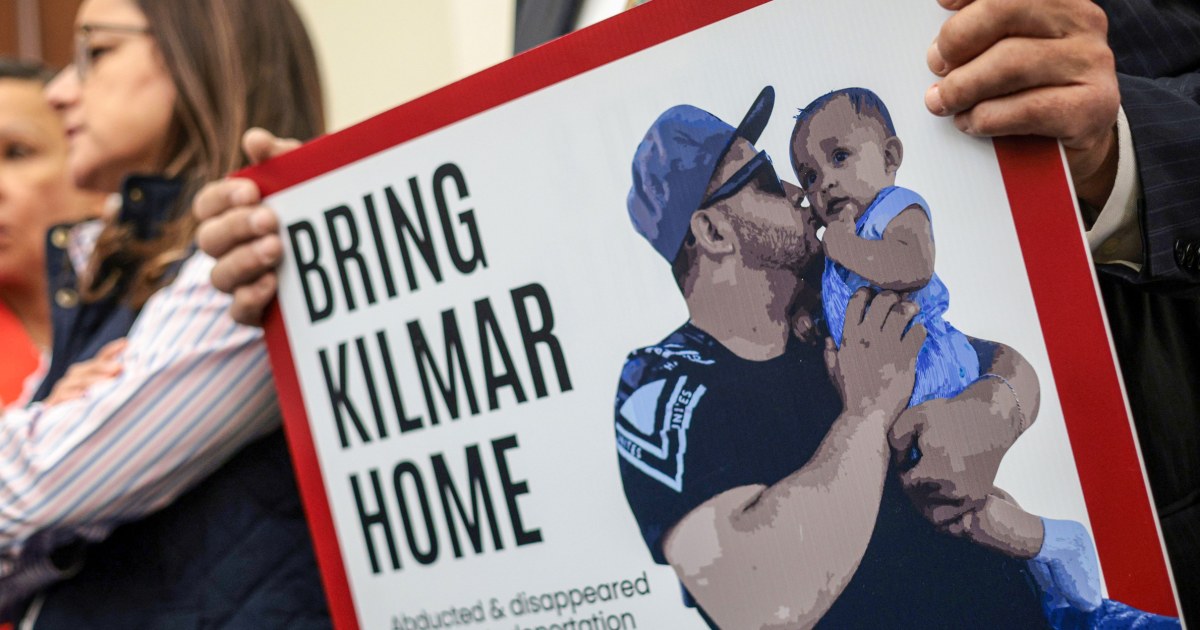The Legal Odyssey of Kilmar Abrego Garcia: A Tale of Deportation and Due Process
A Journey Marked by Controversy
Kilmar Abrego Garcia, a 29-year-old Maryland resident, recently returned to the United States under a cloud of controversy and legal strife. His erroneous deportation to El Salvador sparked a lengthy legal battle focusing on due process violations, raising important questions about the government’s treatment of individuals facing deportation. This case has captured national attention as it intertwines issues of immigration policy, criminal charges, and individual rights.
Arrival Back in the U.S.
On a recent Friday, Garcia appeared in federal court in Nashville, Tennessee, after being transported back to the U.S. to face human smuggling charges. Attorney General Pam Bondi described this moment as Garcia landing “to face justice,” highlighting the seriousness of the legal proceedings ahead. His arrival marked the culmination of a tumultuous journey that took him from Maryland to El Salvador and back again, all while entangled in legal disputes.
The Charges at Hand
Garcia now faces an indictment that charges him with transporting undocumented individuals within the U.S., a conspiracy that purportedly spanned nearly nine years. He is accused of facilitating the movement of migrants, including members of the notorious MS-13 gang, deeper into the United States from their entry point in Texas. The indictment, sealed by a Tennessee court, alleges that Garcia played a central role in this elaborate operation.
Initial Court Appearance
Dressed simply in a beige button-down shirt and jeans, Garcia communicated through an interpreter during his initial court appearance. The federal judge asked him if he understood the charges, to which he responded affirmatively. A critical detention hearing is scheduled for June 13, where arguments will be made about his potential flight risk and the permissibility of his continued detention.
Prosecution’s Stance
Prosecutors have labeled Garcia as a significant flight risk. In a detention memo, they contended that he transported “approximately 50 undocumented aliens throughout the United States per month for several years.” The grave nature of these allegations is underscored by the potential penalties he faces: a maximum of 10 years in prison for each individual smuggled, which could effectively lead to a life sentence depending on the number of convictions.
Reputation and Background
The Justice Department claims that Garcia used his alleged affiliations with MS-13 to advance his criminal activities. President Donald Trump, during a recent press conference, argued that Garcia should never have been deported back to El Salvador, pointing out the grand jury’s findings that frame Garcia not merely as a contractor but as a full-time human smuggler. According to Bondi, Garcia is accused of making more than 100 trips to smuggle undocumented individuals across the country.
Defense’s Response
Garcia’s attorney, Simon Sandoval-Moshenberg, strongly contested the government’s actions, branding the situation as an “abuse of power.” He emphasized that Garcia’s deportation violated a specific court order, asserting that this entire ordeal reflects a failure of due process. “Due process means the chance to defend yourself before you’re punished, not after,” he declared, highlighting the complexities of Garcia’s legal situation.
Disturbing Allegations
The indictment includes a disturbing narrative of how Garcia allegedly operated. It claims that from 2016 to 2025, Garcia conspired to transport migrants illegally from various Central American nations through Mexico into the U.S. After picking up undocumented aliens in the Houston area, Garcia is accused of moving them across state lines to further facilitate their unlawful presence in the country.
Inhumane Conditions and Exploitative Practices
Further compounding the severity of the charges is the alleged inhumane treatment of those transported. The indictment indicates that Garcia took possession of the cellphones belonging to those he transported, effectively trapping them from reaching out for help during the journey. There were even reports that children were smuggled inside vehicle floorboards—a harrowing image that underscores the dangers involved in such operations.
Attempts at Concealment
The indictment also details how Garcia and his associates allegedly went to great lengths to hide their illicit activities. They purportedly reconfigured vehicles to accommodate more passengers and maintained financial records that concealed the origin of payments made by the undocumented migrants. One shocking claim involved Garcia’s alleged participation in transporting 150 migrants in a tractor trailer that suffered a catastrophic accident in Mexico, resulting in numerous fatalities.
Political Ramifications
Reactions from various political figures highlight the broader implications of Garcia’s case. Rep. Jamie Raskin from Maryland noted that while there may be a desire to label Garcia as a villain or a victim, the matter ultimately revolves around legal rights and the constitutional questions surrounding deportation practices. Raskin’s assertion underlines the dual narratives at play: one that seeks to frame Garcia in moral terms and another focused on his legal entitlements.
A Family’s Perspective
Amidst the legal turmoil, Garcia’s family maintains that he has not engaged in any criminal activities. His wife, Jennifer Vasquez Sura, has emphasized that he worked in construction and sometimes transported fellow workers between job sites. Furthermore, there are fears among family advocates that the charges against him may have been exaggerated or fabricated, reflecting a broader pattern of disinformation by the Trump administration during his deportation.
Judicial Questions and Rights Violations
Garcia’s saga raises critical issues about the power dynamics inherent in immigration enforcement. His deportation was described as "illegal" by a federal judge and the U.S. Supreme Court, leading to an order for his return. However, the Trump administration reportedly faced resistance in facilitating this order, citing various administrative hurdles, which further complicates the notion of due process.
Conclusion: Amidst Ongoing Legal Battles
As Kilmar Abrego Garcia navigates the murky waters of U.S. immigration and criminal law, the stakes remain high. The unfolding case not only targets his alleged involvement in human smuggling but also brings to the forefront the critical issues of due process and governmental power. As the legal proceedings continue, the intersection of individual rights and state power remains a compelling narrative in Garcia’s challenging journey.


